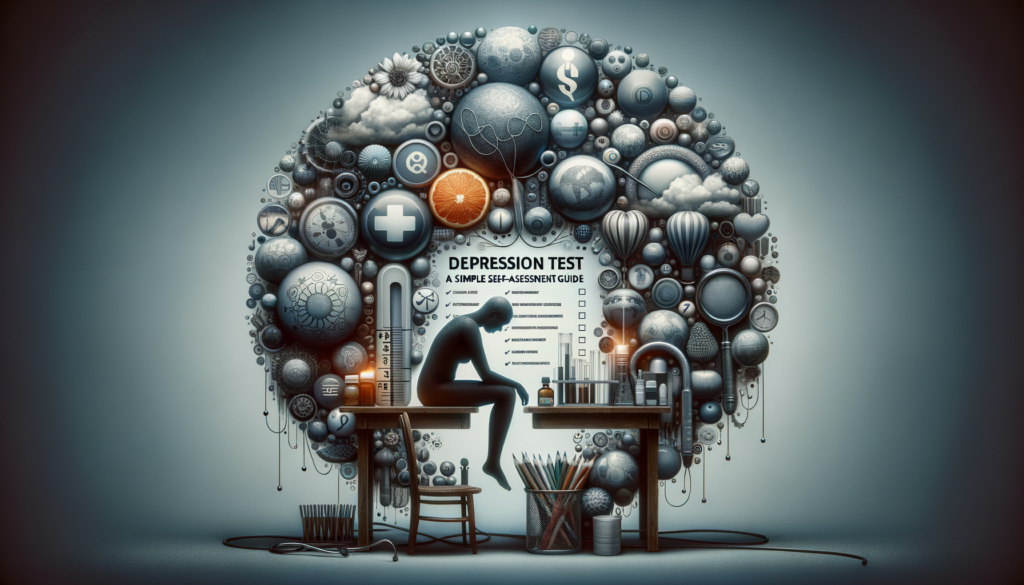The Science & Innovation Blog

Taking a Depression Test: A Simple Self-Assessment Guide
Understanding Depression and Its Impact
Depression is a common mental health condition that affects millions of people worldwide. It can manifest in various forms, from persistent sadness to a lack of interest in daily activities. Understanding depression is crucial as it can significantly impact an individual’s quality of life, relationships, and overall well-being.
Recognizing the symptoms of depression is the first step in addressing the condition. Common symptoms include:
- Persistent feelings of sadness or hopelessness
- Loss of interest in activities once enjoyed
- Changes in appetite or weight
- Difficulty sleeping or oversleeping
- Fatigue or lack of energy
- Difficulty concentrating
- Feelings of worthlessness or excessive guilt
- Thoughts of death or suicide
By understanding these symptoms, individuals can take proactive steps to seek help and improve their mental health.
The Importance of Taking a Depression Test
A depression test, often referred to as a self-assessment, is a valuable tool for identifying potential signs of depression. These tests are designed to help individuals evaluate their emotional state and determine if professional support might be beneficial. While a depression test is not a substitute for a diagnosis from a mental health professional, it can provide valuable insights into one’s mental health.
Taking a depression test can be particularly beneficial for those who are unsure if their feelings are indicative of depression. It serves as a first step in understanding one’s mental health and can guide individuals towards seeking appropriate help.
Moreover, depression tests are widely accessible and can be taken online or through healthcare providers. This accessibility ensures that individuals can assess their mental health conveniently and confidentially.
How to Take a Depression Test
Taking a depression test is a straightforward process. Many online platforms offer self-assessment tools that consist of a series of questions related to mood, behavior, and emotional well-being. These questions are designed to gauge the severity of depressive symptoms.
When taking a depression test, it is important to answer each question honestly. The accuracy of the test results depends on the individual’s willingness to reflect on their feelings and experiences. Typically, the test will ask about the frequency and intensity of symptoms over a specific period, such as the past two weeks.
Upon completion, the test provides a score or assessment that indicates the potential presence of depression. Based on the results, individuals can decide whether to seek further evaluation from a mental health professional.
Interpreting Depression Test Results
After completing a depression test, understanding the results is crucial. The test typically categorizes results into different levels of depression, ranging from mild to severe. Each level provides insights into the possible impact of depression on an individual’s life.
For those with mild symptoms, lifestyle changes such as increased physical activity, improved sleep, and stress management techniques may be recommended. Moderate to severe results suggest the need for professional intervention, such as therapy or medication.
It is important to remember that a depression test is a preliminary tool. A comprehensive evaluation by a mental health professional is necessary to confirm a diagnosis and develop an appropriate treatment plan.
Seeking Professional Help and Support
If a depression test indicates the presence of depressive symptoms, seeking professional help is a vital next step. Mental health professionals, including therapists, counselors, and psychiatrists, can provide a thorough assessment and recommend effective treatment options.
Treatment for depression may include:
- Cognitive-behavioral therapy (CBT)
- Medication, such as antidepressants
- Support groups or peer counseling
- Lifestyle modifications, including exercise and dietary changes
Professional support ensures that individuals receive personalized care tailored to their specific needs, promoting recovery and improved mental health.
Conclusion: Taking Charge of Your Mental Health
Taking a depression test is a proactive step towards understanding and managing one’s mental health. It empowers individuals to recognize potential signs of depression and seek appropriate support. By taking charge of their mental health, individuals can improve their quality of life and achieve a greater sense of well-being.
Remember, mental health is just as important as physical health, and seeking help is a sign of strength. Whether through self-assessment or professional support, taking steps towards mental wellness is a journey worth embarking on.









